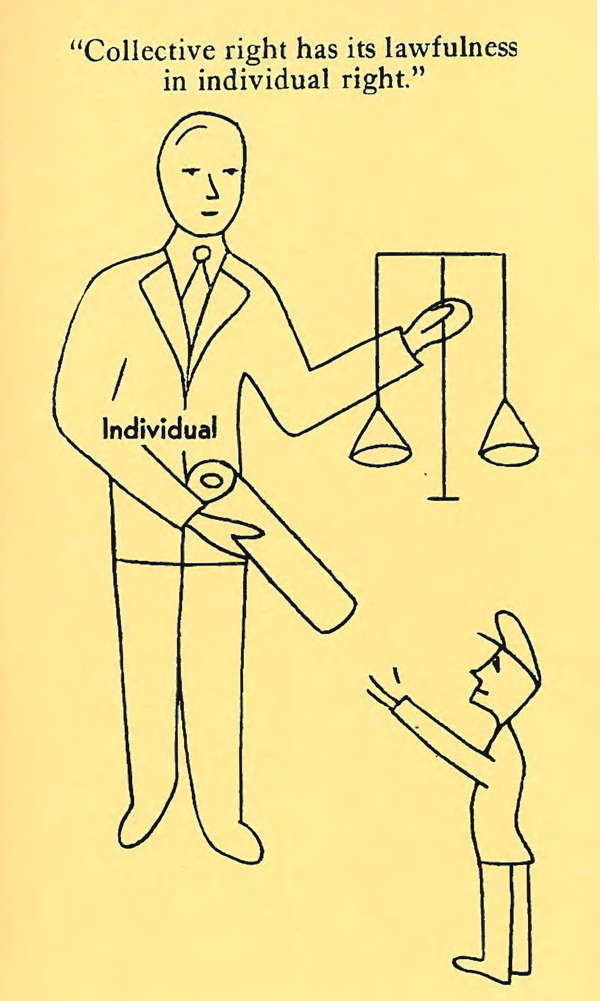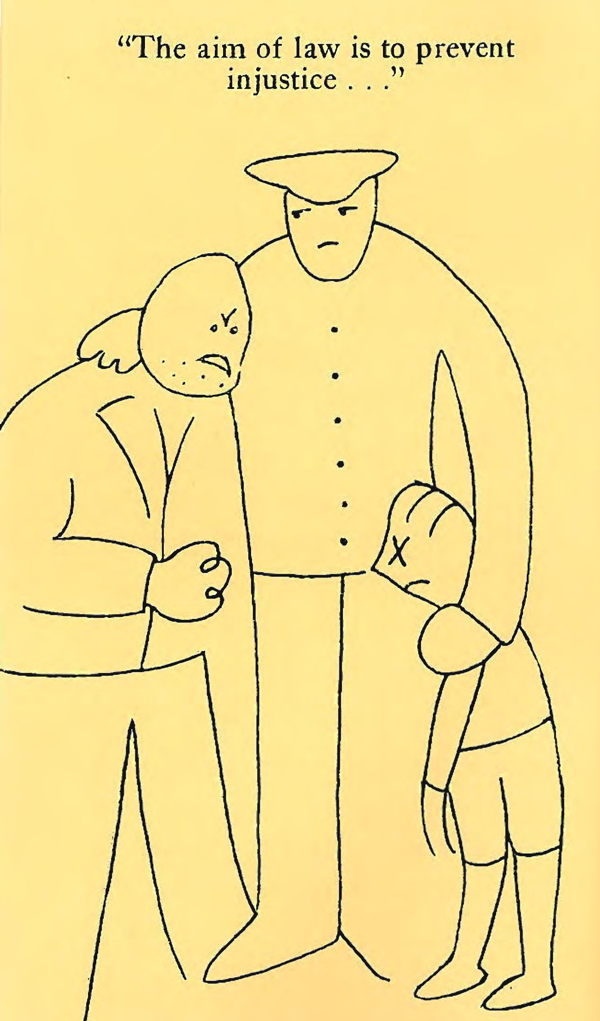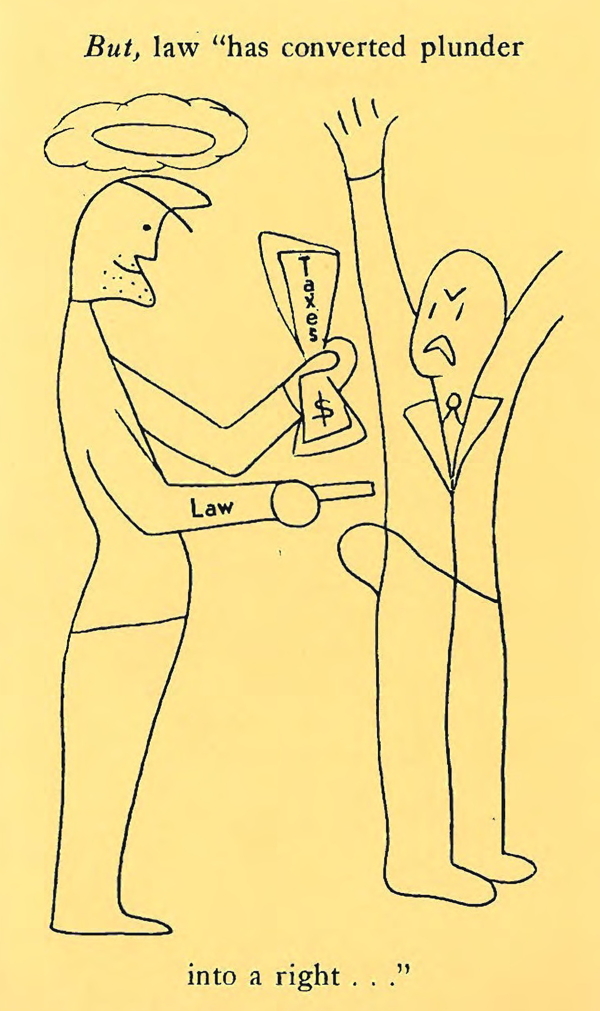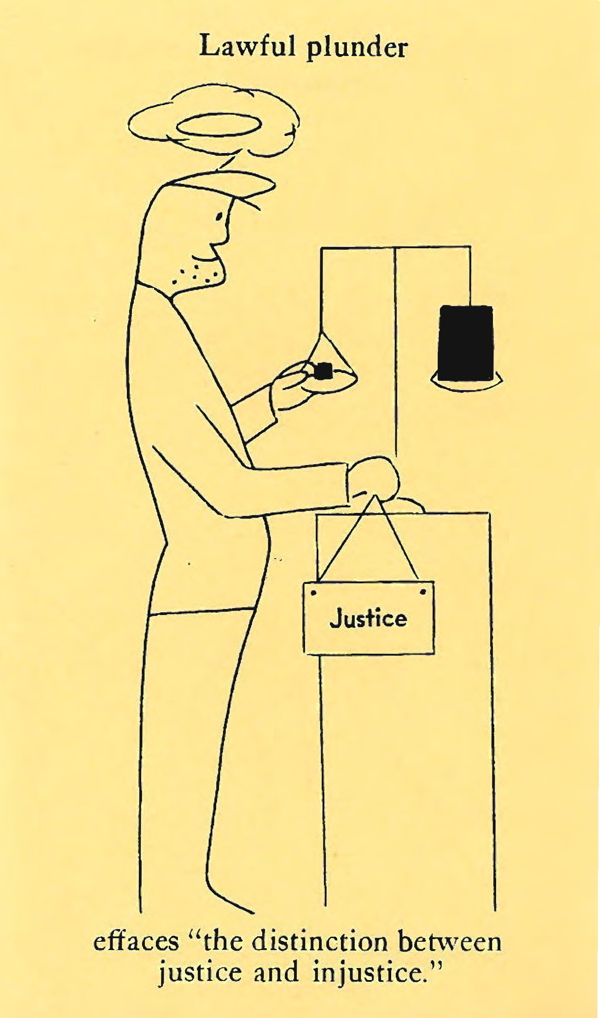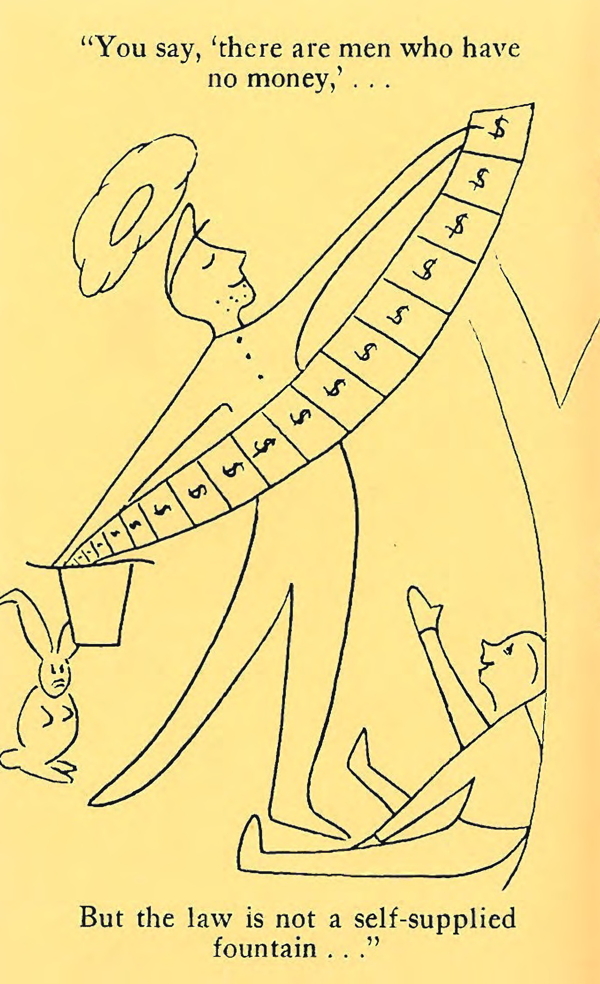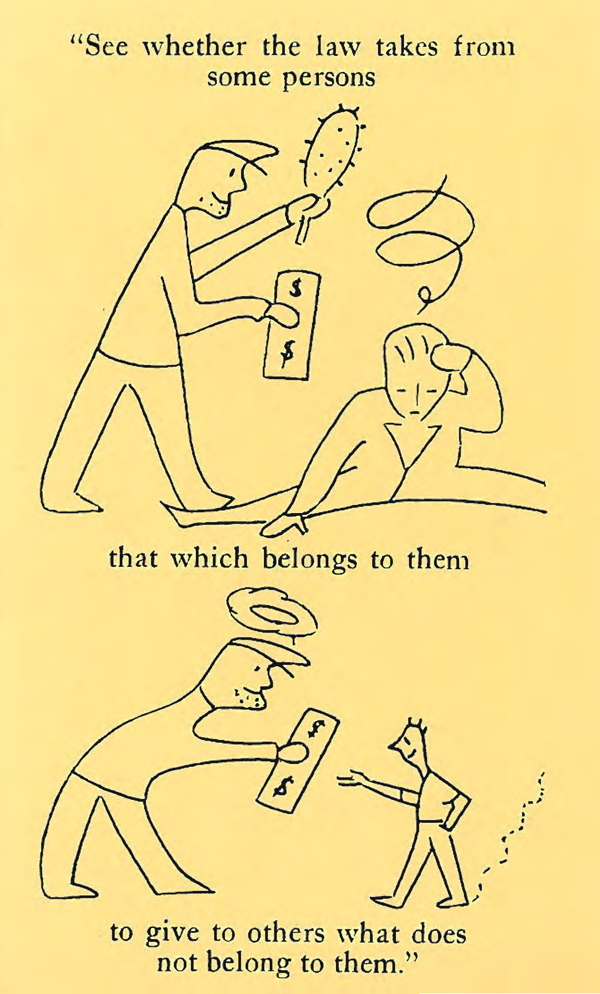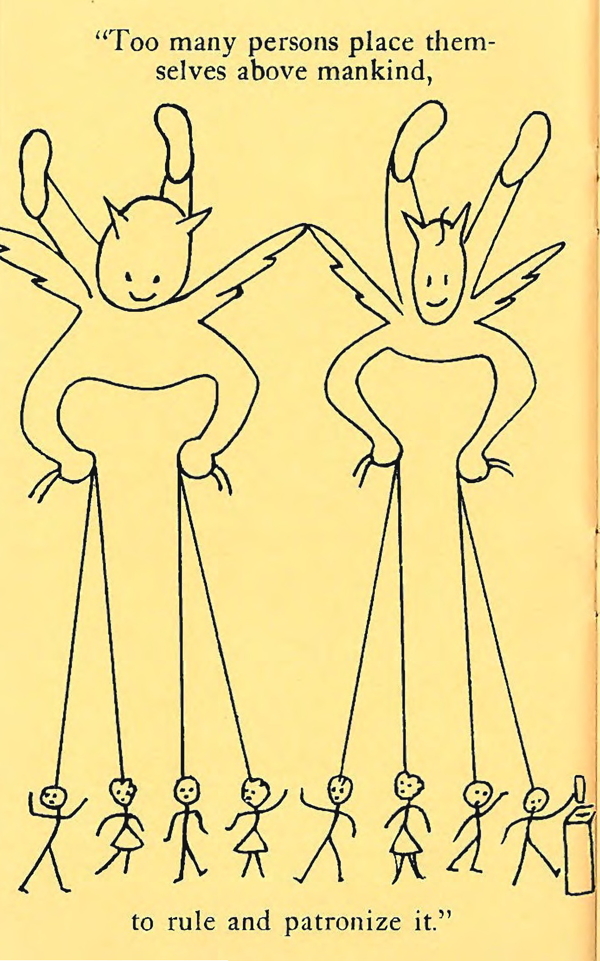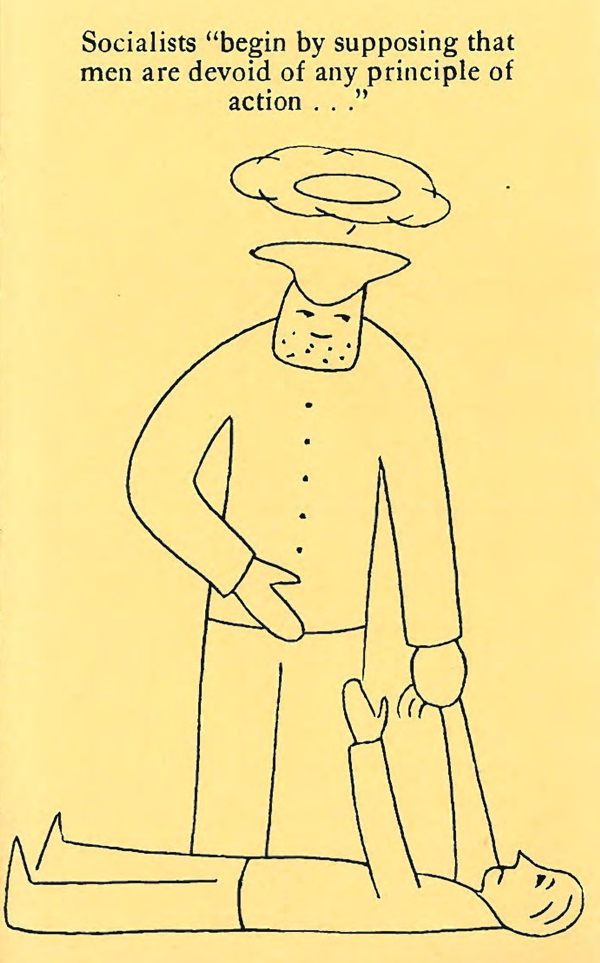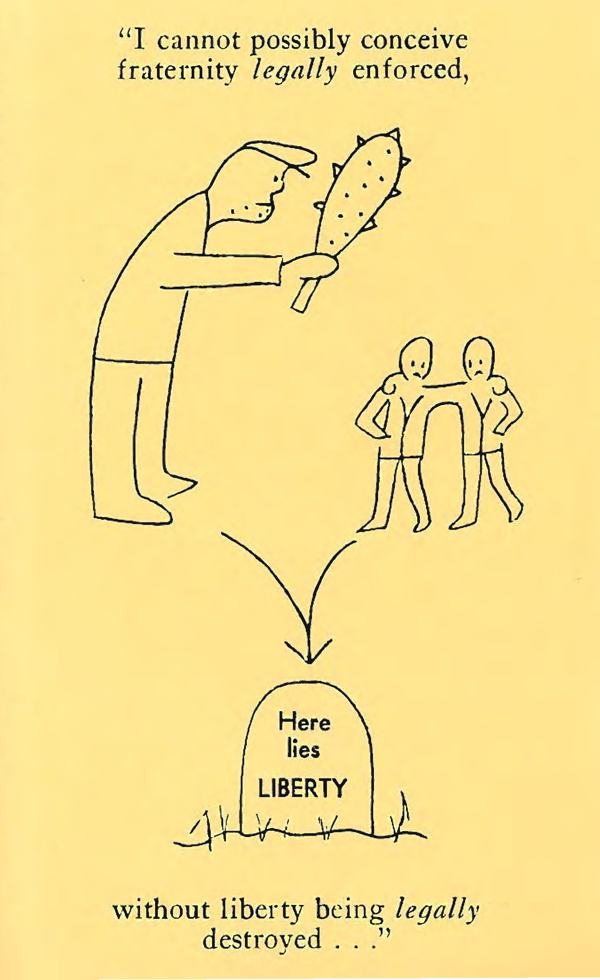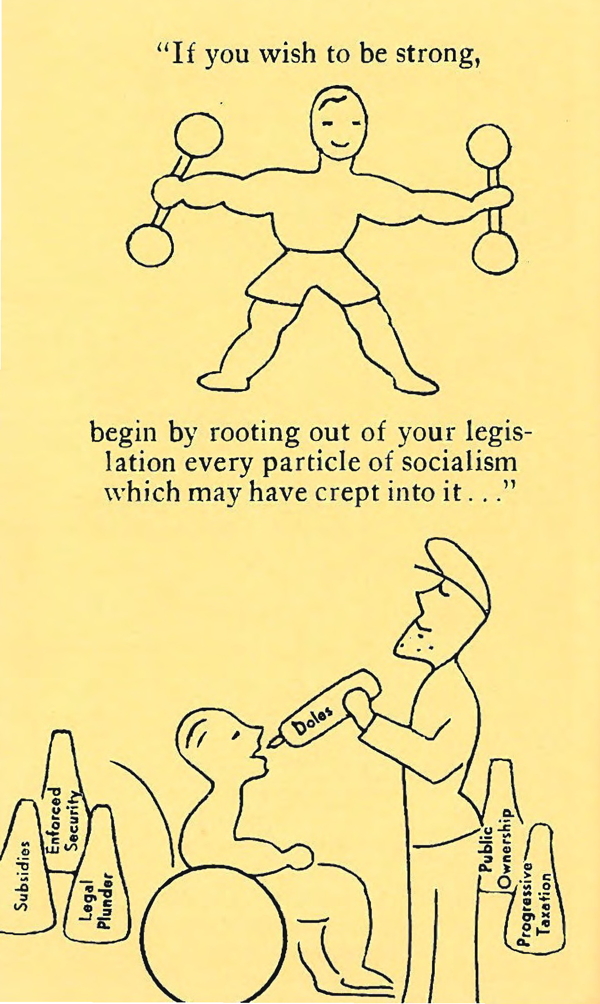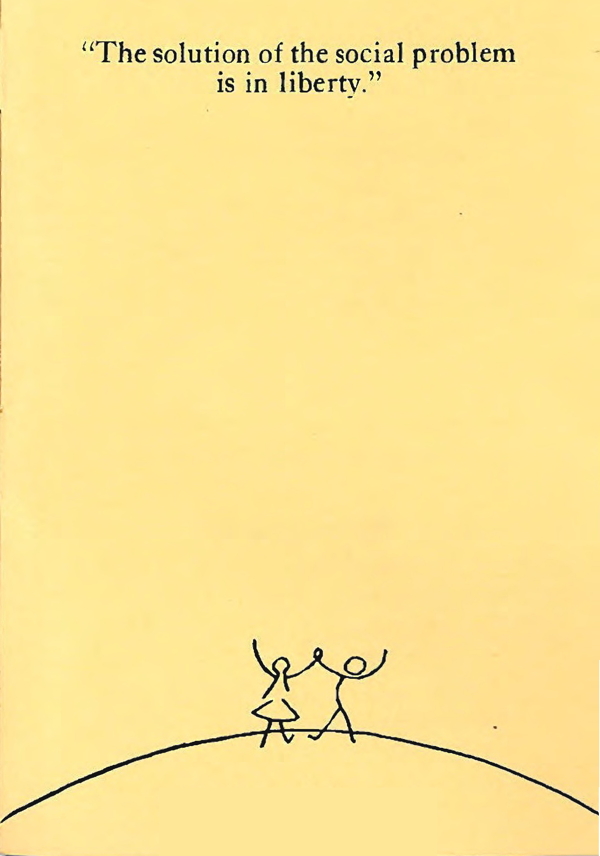
Illustrations for a "sampling" of Bastiat's The Law (1850)
[Added: 19 Jan., 2017]
Source: Samplings of Important Books No. 4: The Law by Frederic Bastiat (The Foundation for Economic Education, Incorporated, Irvington-on-Hudson, N.Y., n.d., circa late 1940s). Sampling and drawings by Constance Harris. Available online at FEE.
One of Frédéric Bastiat's most powerful essays is La Loi [The Law] which was published as a stand alone booklet in 1850. It was written, as was l'État [The State] (1848), as part of his reaction to the rise of socialism during the 1848 Revolution in France. In essence what Bastiat argues in these pamphlets is that forcible redistribution of tax payers money for social purposes (government unemployment relief and the right to a job in particular) is both a violation of the natural right one has to one's life and property (and thus immoral) and also impossible to achieve economically in the long term. State sanctioned plunder can work very well when a minority plunders the majority, but it is "a fiction" to believe, as many did in 1848 and 1849, that the majority can plunder the majority, which is what happens under socialism.
The French editor of the Complete Works of Bastiat, Prosper Paillottet, tells us that The Law was one of the last things written by Bastiat before he died on Christmas Eve 1850, so it is somewhat of a last will and testament. Bastiat wrote it while visiting his friends and family in his hometown of Mugron in June 1850 at a time when he must have know he was soon to die from his debilitating throat condition (perhaps cancer of the throat).
Bastiat's writings were popular for a period in Europe, being quickly translated into many European languages and they and the French editions of his works remained in print throughout the 19th century. English translations were also quickly made and Bastiat even had a "school" of followers in the late 19th century in America. Unfortunately his ideas were forgotten until the Foundation for Economic Freedom began to rehabilitate his work with new English translations in the late 1940s. The biography they had written and the new translations of the Economic Sophisms and Economic Harmonies which appeared in the mid-1960s were crucial to the revival of interest in North America in the post-war period. FEE has recently posted on their website this charming abbreviated and illustrated version of The Law [Bastiat for Dummies?] which they published in the late 1940s. It can be found here at FEE and here at my website.
FEE's edition reminds me very much of a similar abbreviated and illustrated version of Friedrich Hayek's The Road to Serfdom (1944) which appeared at much the same time and which was obviously intended for a similar audience, namely ordinary people who had lived through the enormous expansion of government power which had taken place during the Second World War and who were new to the radical economic and political ideas of liberty which were common place in the 19th century. A condensed version of Hayek's Road to Serfdom appeared in the Reader's Digest in April 1945 and an illustrated version in Look magazine in February 1945.
See the works by Bastiat on the OLL <http://oll.libertyfund.org/people/25> including a version of The Law published by FEE <http://oll.libertyfund.org/titles/78> [Warning: the FEE translation has very annoying and unnecessary headings inserted by the translator which were not in the original]. Also in Liberty Fund's Collected Works of Bastiat, vol. 2.
We include the illustrations from the FEE edition of the late 1940s below:

